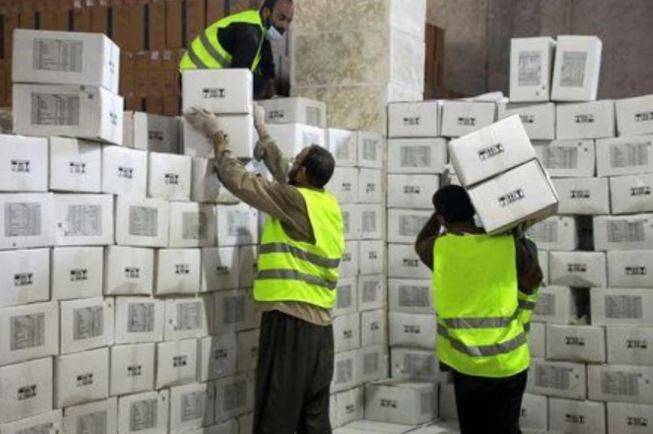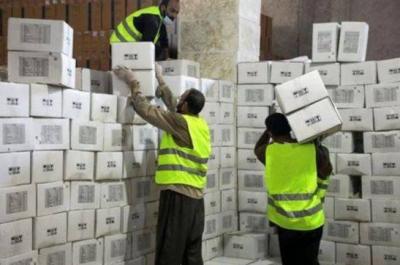The United Nations Security Council approved on Friday the extension of a process for delivering aid to Syria across the border from Turkey, following Russia's agreement on a compromise in last-minute talks with the United States that ensures the United Nations' aid reaches millions of Syrians for 12 months. U.S. Ambassador to the UN Linda Thomas-Greenfield stated, "Parents can sleep tonight knowing their children will have something to eat for the next 12 months. The humanitarian agreement we reached here will save lives in every sense of the word."
Russia and the United States, whose relations have been strained over several issues, described the unanimous Security Council vote on Friday as a significant moment. Russian Ambassador to the UN Vasily Nebenzya told reporters after the vote, "We hope this will be a turning point consistent with what Putin and Biden discussed in Geneva." He added, "This shows that we can cooperate when there is a need and also when there is goodwill."
U.S. President Joe Biden had raised the issue of cross-border aid to Syria and its importance with Russian President Vladimir Putin in June. At that time, the Biden administration warned that halting cross-border aid would jeopardize any cooperation with Russia regarding Syria in the future. Thomas-Greenfield told reporters, "This demonstrates what we can achieve with the Russians if we work with them diplomatically towards common goals... I look forward to other opportunities to work with the Russians on topics of mutual interest."
The council's mandate for the long-standing operation was set to expire on Saturday. The council first authorized cross-border aid operations into Syria in 2014 from four crossings, and last year the entry points were reduced to one from Turkey for an area controlled by armed opposition groups due to Russia and China's opposition to renewing the mandate for the four crossings.
For weeks, Russia, an ally of Syria, had not participated in discussions regarding a draft resolution formulated by Ireland and Norway, which initially sought to extend the mandate for aid deliveries via Turkey and Iraq for 12 months. However, Russia proposed on Thursday a renewal of the mandate for only six months and from the Turkish crossing alone.
After negotiations between Thomas-Greenfield and Nebenzya on Friday morning, the UN Security Council unanimously adopted a resolution that includes a compromise calling for the UN to report on the entry of aid into Syria within six months, but Thomas-Greenfield said this does not require another vote in January to extend the cross-border operation. However, Nebenzya indicated that the council might have to vote again in January if the UN does not provide a report on the progress of aid deliveries across front lines within Syria and on the transparency of cross-border aid operations.
Russia stated that the aid operation is outdated and violates Syria's sovereignty and territorial integrity. In criticism of the United States and other nations, Russia and China attributed some of Syria's plight to unilateral sanctions.
Although the U.S. wanted the Security Council mandate to include two crossings from Turkey and a third from Iraq, Thomas-Greenfield said on Friday that the agreement represents a "success" as "while we wanted to achieve more, we certainly did not want less" than that.
Turkey welcomed the decision to extend aid deliveries to Syria via its territory and urged countries to maintain such a constructive approach towards a lasting political solution to the crisis. The Turkish Foreign Ministry stated that the continuation of the mandate is essential "to meet the needs of the Syrian people."
UN Secretary-General Antonio Guterres also welcomed the Security Council's renewal of the mandate, which is a "lifeline" for over 3.4 million people in need of assistance, including more than one million children. Guterres' spokesperson, Stéphane Dujarric, said, "With additional crossings and an expanded funding base, the UN can provide more to help the increasing number of those in need."




